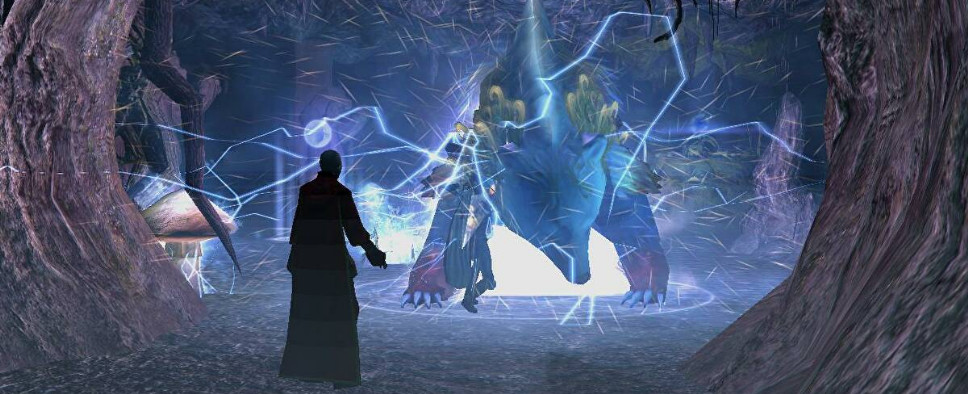GB Feature: George Ziets Interview
-
Category: News ArchiveHits: 2115

GB: I don't think it would be unfair to describe Mask of the Betrayer as your magnum opus. Despite being a mere expansion, plenty of people consider it a worthy successor to Planescape: Torment. Can you tell us a bit about working on that project? Did you know right away that you had something great on your hands there?
GZ: I loved Mask because it was the first time I was permitted to be creative without any significant constraints (besides budget). I also had a lead, Kevin Saunders, who trusted the instincts of his team and saw his job as empowering them, not telling them what to do or meddling in their creative process.
I’ve mentioned this in other interviews, but one benefit of making an expansion was that we were able to focus entirely on building great content, rather than trying to develop the engine and the gameplay at the same time. Additionally, our team had already made the main game together, we had strong working relationships, we knew each other’s strengths and weaknesses, and we trusted each other.
None of that meant it was easy. We only had about 9 months to make Mask, and our design was ambitious. There were a lot of crunch hours, tons of writing, art, and level design to be done, and revisions upon revisions during preproduction as I kept trying to improve the quality of the story. I didn’t think about much of anything else during those 9 months, whether at work or at home. It was the most intense creative experience I’d ever had (and entirely self-imposed).
Until the first reviews started coming in, I absolutely didn’t know we’d made something people would like. To his credit, I think Kevin knew, but I tend to be harsh on my own work, so I had no idea how it would be received.
...
GB: Your studio's mission mentions exploring "the intersection between RPGs and other genres." Which other genres would that be, and what makes them interesting to you?
GZ: The genre I personally find most interesting in this context is strategy. I love strategy games like Total War, Crusader Kings, and King of Dragon Pass, the latter of which is an excellent example of how strong narrative elements can be integrated into a strategy game.
This gets back to what I mentioned earlier about choosing a narrative experience you want to portray in your game and then designing mechanics around it. Sometimes strategy elements might be the best way to do this. As an example - imagine a game where the player takes the role of an agent provocateur in a 19th or early 20th century world, sent to infiltrate and stir up trouble in an enemy city. Such a game might need a combination of some traditional RPG interactions with strategy elements like directing the activities of workers during labor strikes and assigning your minions to tasks like fomenting unrest in poor districts, organizing rallies and riots, and infiltrating government offices.

